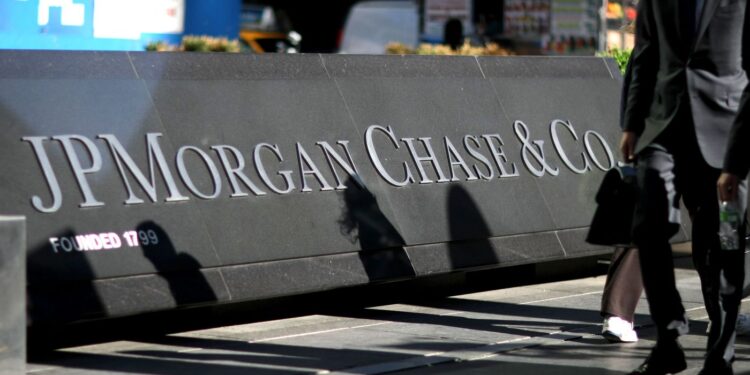- Banking giant uses Polygon and modified Aave for live trade
- Firm explores decentralized finance for real-world assets
JPMorgan Chase & Co executed its first live trade on a public blockchain, a significant step toward integrating with the plumbing underlying the world of cryptocurrencies.
The bank issued tokenized S$100,000 ($71,000) as part of the Singapore central bank’s pilot programs exploring the use of decentralized finance, or DeFi, in the banking sector, then traded it for tokenized yen with Japan’s SBI Digital Asset Holdings. DBS Bank Ltd., Standard Chartered Plc and HSBC Holdings Plc are also part of the pilots.
While the transaction wasn’t a crypto trade, it used the infrastructure developed by crypto firms: the Polygon blockchain, which makes transactions on the Ethereum blockchain cheaper, and a modified version of Aave, a major DeFi lending project.
“Today was the first step to show that we can actually trade on these public networks,” said Tyrone Lobban, head of Blockchain Launch and Onyx Digital Assets at JPMorgan, in an interview. “The future is really working toward scaling this pivotal moment.”
Wall Street institutions have been exploring the use of blockchain in their businesses, such as for intraday repurchase, a type of short-term borrowing in fixed income, and cross-border trades. But existing efforts by banks, including New York-based JPMorgan, are based on private blockchains that require users to receive permission to join.
Public blockchains, which allow everyone to access the infrastructure, can potentially remove challenges such as isolated or fragmented liquidity. In a bid to maintain regulatory compliance, platforms such as Aave Arc provide permissioned liquidity pools, which require participants to undergo so-called know-your-customer verification.
“We clearly see what’s happening in the public domain and we can see how the innovation is creating not only new ways of doing financial transactions, but new types of products as well,” Lobban said. The bank will explore using other blockchain networks over time, he added.
Source: Bloomberg


Recent Comments